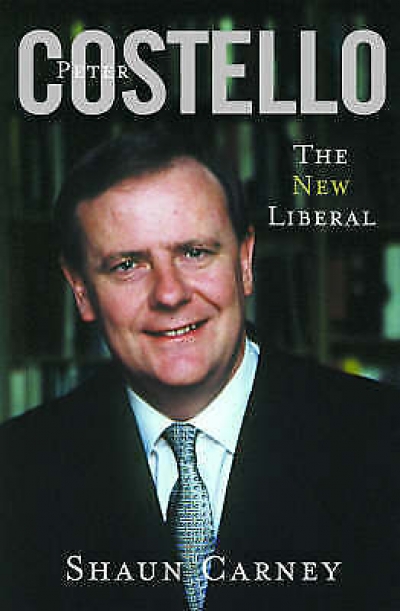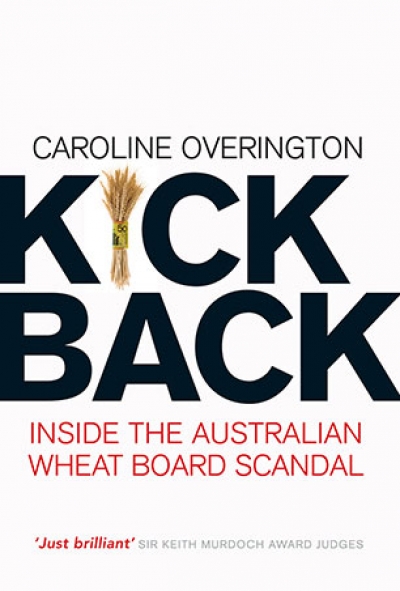John Button
A new prize for Miles Franklin
Miles Franklin turns fifty this year. Well, 128, to be strictly biographical. Three years after the death of Miles Franklin (1879–1954), the inaugural Miles Franklin Literary Award was inaugurated. This year, the judges have rather more money to present ($42,000) than they did in 1957, when Patrick White’s Voss won the Award.
... (read more)Letters to the Editor - March 2007
Dear Editor,
I welcomed Barry Jones’s feisty response (February 2007) to my review of his autobiography, A Thinking Reed (December 2006–January 2007). Such autobiographies, the reviews and the commentaries on them are the first drafts of history, and such debates will be valuable to later and more dispassionate historians. Apart from some sardonic barbs, which I may well deserve, he seems to have only one substantive quarrel with the review and that is with my critical assessment of his performance as science minister in the Hawke government.
... (read more)Jonathon Otis – a true believer
The winner of the 2008 ABR Reviewing Competition is Jonathon Otis for his review of Julian Barnes’s memoir, Nothing to Be Frightened Of. Mr Otis receives $1000 and future commissions in the magazine. Second prize, valued at $250, goes to Elizabeth Campbell for her review of Brook Emery’s poetry collection Uncommon Light. Third prize, a set of Black Inc. books, goes to Alexis Harley for her review of Janet Frame’s novel Towards Another Summer.
The competition attracted 150 entries – a forty per cent increase from 2005. The selection of subjects under review was impressively vast, ranging from national and international fiction to ethics, the economy and even gastronomy. Religion, notably, was a popular subject; we received numerous reviews of Christopher Hitchens. There were multiple reviews of Ian McEwan and J.M. Coetzee. Interestingly, death was a popular subject.
Peter Rose judged the competition with Rebecca Starford. The Editor remarked: ‘This competition gets better and better. I’m pleased we attracted more entries, but the main purpose of this competition is to foster greater interest in the art of reviewing, to encourage new reviewers and to replenish the ranks of Australian critics. The standard this year was markedly higher than in previous years; the long list was extensive. We have identified about two dozen new reviewers for ABR. We’ll certainly present this award again in 2009.’
Jonathan Otis, a Melbourne-based writer with an abiding interest in genre, had this to say on learning of his win: ‘I feel a quiet, comforting elation. I am a true believer in literature’s life-affirming qualities. For me, ABR exemplifies vigilance through art in Australia. I am thrilled to have won the competition and for the opportunity to contribute to such an esteemed literary review.’
Jonathon Otis’s review appears on page 42. He will write for us again in 2009.
... (read more)John Button was rare man, rare for any time, any place and in any calling. The public face – the Senator John Button, long-time Leader of the Government in the Senate, the hands-on, hard-hat minister of the Button car plan, the policy innovator and party reformer, the straight talker, unbridled political wit, notorious doodler, note writer, and scribbler of politically incorrect postcards to Senator Bronwyn Bishop (imagine it!) – that is the John Button Australia knows. His achievements have been many and they are exemplary.
... (read more)Kickback: Inside the Australian wheat board scandal by Caroline Overington
The Victorian Premiers 1856–2006 edited by Paul Strangio and Brian Costar
Dennis Altman
In any given year we will read but a tiny handful of potential ‘best books’, so this is no more than a personal selection. Here are two novels that stand out: Stephen Eldred-Grigg’s Shanghai Boy (Vintage) and Hari Kunzru’s Tranmission (Penguin). Both speak of the confusion of identity and emotions caused by rapid displacement across the world. The first is the account of a middle-aged New Zealand teacher who falls disastrously in love while teaching in Shanghai. Transmission takes a naïve young Indian computer programmer to the United States, with remarkable consequences. From a number of political books, let me select two, both from my own publisher, Scribe, which offers, I regret, no kickbacks. One is George Megalogenis’s The Longest Decade; the other, James Carroll’s House of War. Together they provide a depressing but challenging backdrop to understanding the current impasse of the Bush–Howard administrations in Iraq.
... (read more)



